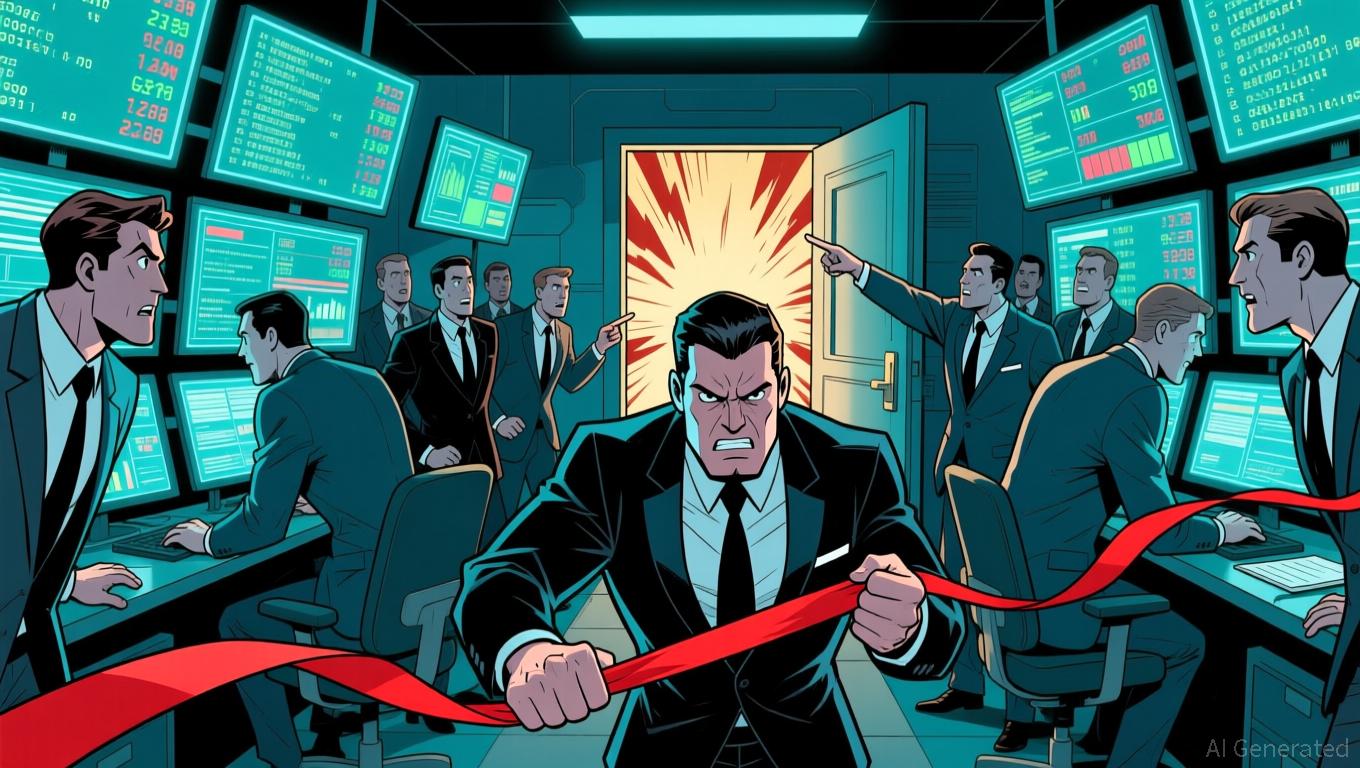Ethereum Updates Today: Does MEV Manipulation Constitute Cheating or Legitimate Strategy? Crypto Lawsuit Moves Toward Retrial
- Prosecutors seek retrial for MIT-educated Peraire-Bueno brothers accused of $25M Ethereum MEV exploit, with new trial set for late 2026. - First criminal MEV case highlights legal challenges in defining fraud within blockchain's decentralized systems, after deadlocked jury caused mistrial. - Prosecutors allege transaction reordering siphoned funds, while defense claims bots operated within Ethereum's "fair competition" rules. - Case could shape crypto regulation, with DOJ emphasizing MEV risks to blockch
Federal prosecutors in New York’s Southern District have called for a new trial for MIT alumni Anton and James Peraire-Bueno, who are accused of orchestrating a $25 million
The brothers are charged with wire fraud, conspiracy to commit wire fraud, and money laundering, each carrying a possible 20-year prison sentence if found guilty

The mistrial underscored the challenges of applying conventional fraud laws to blockchain systems. Jurors reportedly found it difficult to interpret technical evidence and legal standards, including whether “wrongful means” required intent to break the law
This case has significant ramifications for the broader crypto sector. The Department of Justice has stressed the importance of tackling MEV exploits, which are increasingly seen as a threat to blockchain scalability
The prosecution’s insistence on a 2026 retrial highlights the Justice Department’s resolve to pursue digital asset-related offenses. The upcoming trial is expected to focus more closely on technical evidence and the question of intent, with both sides likely to rely on expert witnesses to explain blockchain operations
The ongoing legal dispute involving the Peraire-Bueno brothers highlights the ongoing struggle between technological innovation and regulatory oversight in the crypto space. Their defense, supported by advocacy group Coin Center, warns that criminalizing unconventional validation techniques could destabilize decentralized networks
Disclaimer: The content of this article solely reflects the author's opinion and does not represent the platform in any capacity. This article is not intended to serve as a reference for making investment decisions.
You may also like
Ethereum Updates Today: DeFi's Quest for Stability: Is It Buterin's Dream or a Traditional Finance Trap?
- Ethereum co-founder Vitalik Buterin declares DeFi "finally viable" as a savings tool, citing improved security and maturity since 2019-2020. - He advocates "low-risk DeFi" as Ethereum's foundation, comparing it to Google Search's role in Alphabet's dominance. - Institutional confidence grows with ARK Invest's ETH exposure and whale accumulations, while TVL declines and legal uncertainties persist. - Critics warn stability-focused DeFi risks becoming a "TradFi Trojan horse," stifling innovation despite bu

Bitcoin News Today: Bitcoin Faces $108K Test: Surge Ahead or Setback?
- Bitcoin hovers near $104.5K with technical indicators signaling potential breakout above $108K, driven by ETF inflows and reduced miner selling pressure. - AlphaPepe (ALPE) attracts 3,500+ holders via BNB Chain presale, offering staking rewards and 10% referral incentives amid SHIB holders' search for high-potential meme tokens. - Shiba Inu expands utility through telecom node partnerships, enabling SHIB-based payments and rewards, aiming to solidify real-world adoption beyond speculative trading. - Cana

Boring Co.'s Hazardous Tunnels Face Off Against OSHA's Weak Oversight
- The Boring Co. was fined $500K for illegally dumping toxic drilling fluids in Las Vegas, damaging infrastructure and raising health risks. - Nevada OSHA faced scrutiny over withdrawn citations due to procedural errors and missing records, sparking transparency concerns. - The Governor’s Office denied political interference but deleted a meeting record, deepening skepticism about regulatory independence. - Repeated environmental and safety violations highlight ongoing regulatory challenges for the Boring
Boring Co. Penalties Highlight the Challenge of Balancing Safety with Innovation
- The Boring Company faces a $493,297 fine for illegally dumping toxic drilling fluids into Las Vegas manholes, marking the largest penalty in Nevada's CCWRD history. - Nevada OSHA withdrew 2023 safety citations after legal review, citing unmet requirements for valid violations, raising concerns about regulatory enforcement consistency. - Critics highlight political pressure risks and legal loopholes, including Anti-SLAPP law tactics, that could hinder future accountability for high-profile tech ventures.